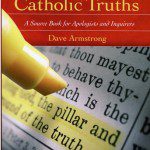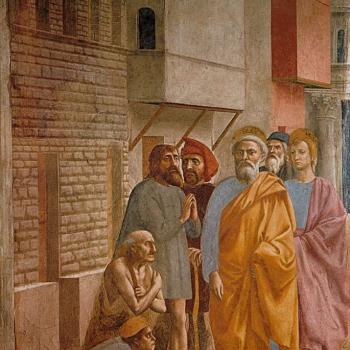(2-16-09)
Incense (i.e., a thing that burns and produce smoke and fragrances, which is similar to a candle, complete with the metaphorical smelling of the offering by God), as an image of prayer, is an explicit biblical motif:
Genesis 8:20-21 (RSV) Then Noah built an altar to the LORD, and took of every clean animal and of every clean bird, and offered burnt offerings on the altar. And when the LORD smelled the pleasing odor, the LORD said in his heart, “I will never again curse the ground because of man, for the imagination of man’s heart is evil from his youth; neither will I ever again destroy every living creature as I have done.
Leviticus 2:9 And the priest shall take from the cereal offering its memorial portion and burn this on the altar, an offering by fire, a pleasing odor to the LORD.
Leviticus 6:15, 21 And one shall take from it a handful of the fine flour of the cereal offering with its oil and all the frankincense which is on the cereal offering, and burn this as its memorial portion on the altar, a pleasing odor to the LORD. . . . It shall be made with oil on a griddle; you shall bring it well mixed, in baked pieces like a cereal offering, and offer it for a pleasing odor to the LORD.
Psalm 141:2 Let my prayer be counted as incense before thee, and the lifting up of my hands as an evening sacrifice!
Luke 1:9-10 according to the custom of the priesthood, it fell to him by lot to enter the temple of the Lord and burn incense. And the whole multitude of the people were praying outside at the hour of incense.Revelation 5:8 And when he had taken the scroll, the four living creatures and the twenty-four elders fell down before the Lamb, each holding a harp, and with golden bowls full of incense, which are the prayers of the saints;
Revelation 8:3-4 And another angel came and stood at the altar with a golden censer; and he was given much incense to mingle with the prayers of all the saints upon the golden altar before the throne; and the smoke of the incense rose with the prayers of the saints from the hand of the angel before God.
See also, 161 references in the (RSV) Bible (Part One / Part Two) to incense in general, as symbolic of an offering to the Lord; and 52 biblical references to “(pleasing) odor”; and “fragrant” / “fragrance” (37 instances).
The Bible even uses the symbolism of fragrance for the gospel, Jesus’ redemptive sacrifice on the cross, and charitable giving:
2 Corinthians 2:14 But thanks be to God, who in Christ always leads us in triumph, and through us spreads the fragrance of the knowledge of him everywhere.
Ephesians 5:2 And walk in love, as Christ loved us and gave himself up for us, a fragrant offering and sacrifice to God.
Philippians 4:18 I have received full payment, and more; I am filled, having received from Epaphrodi’tus the gifts you sent, a fragrant offering, a sacrifice acceptable and pleasing to God.
Some people may think this is “old-fashioned,” but the Bible never goes out of fashion, and to the extent that the Catholic Church follows its guidelines and examples, she can’t go wrong. The Bible is inherently sacramental (physical means of grace). It’s everywhere. It can’t be avoided. The incarnation itself is sacramental (God becoming man and taking on a material body in order to save us). And the Catholic Church abides by this biblical worldview.
Presently, with regard to candles and incense, I mean “sacramental” in the very widest sense, which would be use of physical things for spiritual purposes. A candle in a Catholic church is indirectly a sacramental insofar as it entails a physical action that can be a blessing in some sense to the person who lights one. And they would have been blessed by a priest. So they are sacramentals, as opposed to sacraments.
A burning thing that represents prayer or some other sort of offering to God is biblically explicit and analogous in large part to candles. The prayers of the saints in the two passages in Revelation are not metaphorical at all. I think this is a fairly strong argument by analogy; but many people don’t understand analogical argument. Many Protestants demand explicit proof in the Bible for everything when this is not necessary. The logic of the argument runs as follows:













